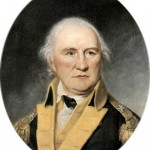Good morning, Whitewater.
Sunday will be partly sunny with a high of two degrees. Sunrise is 7:21 and sunset 4:48, for 9h 27m 38s of daytime. The moon is a waxing gibbous with 56.9% of its visible disk illuminated.
Friday’s FW poll asked about the likely victors of this weekend’s NFL games. We’re only half done this games, with Seattle-Carolina and Pittsburgh-Denver to go.
Here’s schedule of posts for the week ahead, with other posts possible (if there are changes to these scheduled posts I’ll explain why):
- Today: DB, weekly Animation post
- Monday: DB, weekly Music post, WHEN GREEN TURNS BROWN post, evening post
- Tuesday: DB, weekly Education post, evening post
- Wednesday: DB, weekly Film post, a post contrasting Attorney General Brad Schimel with UW-Whitewater’s Media Relations director, evening post
- Thursday: DB, weekly Food or Restaurant post, a post on Whitewater’s infrastructure, evening post
- Friday: DB, weekly Poll, weekly Catblogging
- Saturday: DB, weekly Animation post moves to Saturday, evening post
On this day in 1781, America is victorious at the Battle of Cowpens:
The Battle of Cowpens (January 17, 1781) was a decisive victory by Continental Army forces under Brigadier General Daniel Morgan in South Carolina over the British Army led by Colonel Banastre Tarleton, during the Southern campaign of the American Revolutionary War. It was a turning point in the rebel reconquest of South Carolina from British control. It took place in northwestern Cherokee County, South Carolina, north of the town of Cowpens….
Morgan’s army took 712 prisoners, which included 200 wounded. Even worse for the British, the forces lost (especially the British Legion and the dragoons) constituted the cream of Cornwallis’ army. Additionally, 110 British soldiers were killed in action. Tarleton suffered an 86 percent casualty rate, and his brigade had been all but wiped out as a fighting force.[5] John Eager Howard quoted Maj. McArthur of the 71st Highlanders, now a prisoner of the Americans, as saying that “he was an officer before Tarleton was born; that the best troops in the service were put under ‘that boy’ to be sacrificed.”[57] An American prisoner later told that when Tarleton reached Cornwallis and reported the disaster, Cornwallis placed his sword tip on the ground and leaned on it until the blade snapped.[58]
Historian Lawrence E. Babits has demonstrated that Morgan’s official report of 73 casualties appears to have only included his Continental troops. From surviving records, he has been able to identify by name 128 Patriot soldiers who were either killed or wounded at Cowpens. He also presents an entry in the North Carolina State Records that shows 68 Continental and 80 Militia casualties. It would appear that both the number of Morgan’s casualties and the total strength of his force were about double what he officially reported.[59]
Tarleton’s apparent recklessness in pushing his command so hard in pursuit of Morgan that they reached the battlefield in desperate need of rest and food may be explained by the fact that, up until Cowpens, every battle that he and his British Legion had fought in the South had been a relatively easy victory. He appears to have been so concerned with pursuing Morgan that he quite forgot that it was necessary for his men to be in a fit condition to fight a battle once they caught him, though Cornwallis himself did press Tarleton to take aggressive action.[60]
Nevertheless, Daniel Morgan, known affectionately as “The Old Waggoner” to his men, had fought a masterly battle. His tactical decisions and personal leadership had allowed a force consisting mainly of militia to fight according to their strengths to win one of the most complete victories of the war….

